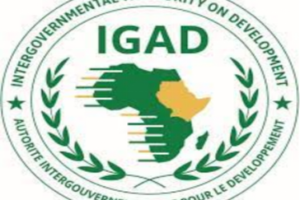
Last week, sources indicated that the state-owned Ethio-Telecom has 44 million subscribers. Ethio-telecom has registered a record profit of more than one billion birr. It has introduced new technology in data and internet use. This is a huge success given the relatively late introduction of mobile and internet services in the country.
Ethiopia’s total population is estimated to have long passed the 100 million mark. By a simple calculation, we can estimate almost half of the country’s adult population is now using telephone services. Leaving aside the quality of services that leave much to be desired, particularly when it comes to mobile service, this makes Ethiopia one of the few African countries that have partially succeeded in providing their citizens with modern telephone services.
Opinions are being expressed by individuals as to the wisdom of fully or partially privatizing Ethiopia’s major assets such as Ethio-telecom. However the public at large is not taking part in the debates to determine whether the new reformist government should go ahead with its privatization program or stop and think expert opinions on the matter before choosing prospective buyers or if this is not possible at this stage, at least consult expert opinions as to how to go about the asset valuation and terms of privatization of Ethio-telecom and the other pillars of the state sector.
The complexity of global telecom business and international asset transfers has partially contributed to the absence of informed debate. However, the government is certainly hiring the right consultants for the job before making the final decisions or sign deals with prospective foreign investors.
The liberalization of the economy in general is also triggering a kind of ideological debate not only among the pundits but also among the various tendencies within the ruling party. Those who hail what they call the achievements of the so-called developmental state are looking at liberalization as a kind of surrender to global capitalism whose sole interest is to maximize profits at the cost of privatizing or liberalizing countries whose populations are bound to fall prey to the voracious appetites of Capitalism. There are also national security concerns that might come with the decision to put Ethio-telecom in particular into the hands of foreign interests.
On the other hand, those who espouse the virtues of capitalism or globalization maintain that the state controlled model of development has outlived its time or purpose and the time has come for opening up the economy to foreign capital and attract greater investment capital, technology and innovation that are indispensable for maintaining if not upping the tempo of economic growth. What makes Ethio-telecom in particular a subject of controversy is in part its fast success and its brighter prospects.
As the privatization of Ethio-telecom is going to be a fiat accompli very soon, it might be relevant to address one issue that has never been raised by the arguments on both sides of the ideological debates. And that is the fate of telecom subscribers post-privatization; whether they would become victims of unethical capitalism or be blessed with lower services charges, better technology and faster internet penetration as promised by advocates of the neoliberal cause.
Last week, sources indicated that the state-owned Ethio-Telecom has reached 44 million subscribers. This is a huge number given the relatively late introduction of mobile service in the country. Ethiopia’s total population is estimated to have long passed the 100 million mark. If one tries a simple calculation and subtracts the number of people who have not yet reached they which they are capable of buying and using a phone line, almost half of the country’s adult population is now using telephone services.
Leaving aside the quality of services that leave much to be desired, particularly when it comes to mobile service, this makes Ethiopia one of the few African countries that have partially succeeded in providing their citizens with modern telephone services.
Ethio-telecom’s growth is quite impressive. In less than two decades since the introduction mobile network that has largely made landlines redundant, the company has grown into a huge entity that is now slated for privatization in accordance with the new reformist economic policy espoused by Dr. Abiy Ahmed’s administration. One of the reasons for the planned privatization is the poor quality of its mobile services that resulted from lack of competitiveness in the sector.
Lack of competition is known to discourage innovation in any sector. As the telecom sector is a particularly dynamic or fast changing one this can only be achieved by various companies competing among themselves. Since local telecom companies have not been allowed to operate and had given monopoly status to the only telecom company in the country, technological innovation and quality customer services have been the weak underbellies of the companies in the last few years in particular. When there is no competition, prices for the available services tend to go higher while quality of services do not improve.
The other factor that has allegedly retarded telecom service growth in the country is the preferential treatment given to some regions by the authorities has led to an imbalance in the distribution of services whereby some parts of the country have better access to telecom services while others relatively lag behind. When political decisions from above and allowed to regulate telecom regulation or management the market stops to serve as the leading factor in the distribution or allocation of the available services.
Opponents of the privatization policy often suggest that state control is best for providing telecom services to rural areas where the agricultural population needs them most. They maintain that privatization might lead to the pattern of geographic distribution of the services to shift from rural to urban areas where profits are higher and private foreign companies are most likely to locate their operations. Supporters of this view point at the fast spreading of telecom services to the state intervention in the sector and indirectly affirm that private companies could not have registered such a phenomenal growth in a relatively short time. By the same token private operators are said to be focusing on profits while the state operators is primarily concerned with service provision.
However advocates of telecom privatization insist on service improvement that is not possible under state control and management of the sector. Proponent of the privatization of Ethio-telecom sometimes maintain that the state is keen to keep the sector under its firm control for political reasons and because of the lucrative nature of the business that allows the state to reap the profits all by itself. These views are widely circulating at this time when the government is apparently making the final preparations for the full or partial privatization of the sector in accordance with the overall economic reform program.
A brief survey of the telecom sector in Ethiopia suggests that Ethio-telecom is indeed a very profitable business entity even if it can’t much Ethiopian Airlines in the size, profitability or technological advances. These two entities are cash cows to the government and models of relative success.
Industry insiders believe that Ethio-telecom has grown fast and become one of the biggest profit making companies in the country in terms of the tax they pay to the government. The fact however is that the profit motive is not the business of customers while quality and price of services are of primordial importance. If one looks at the issue from the point of view of users or customers, the privatization argument holds water while profitability or the amount of money the state makes from the sector is of lesser importance.
This does not however mean that Ethio-telecom under state control has not introduced technological innovation in the sector. In fact, the government has brokered several deals with mainly Chinese telecom companies to introduce technological innovation in the mobile telephone services in particular.
The 3G and 4G generations of mobile service were imported and introduced by Ethio-telecom although their service costs might be beyond the reach of the average customer. The government has also established training institute for young tech innovators and for the best and the brightest among them who will certainly boost the country’s technological capacity in the near future.
It is also good news that recent developments in these area are coming up with positive prospects as a number of international internet companies are working hard to provide free 4G and 5G services free of charge for people in the less developedcounties of the world. Facebook has also announced or promised that it is working in that direction and will, in the near future, provide free internet services to people in those countries via satellite technology.
It is now a matter of time before a foreign company or a group of companies would take over Ethio-telecom fully or partially, depending on their preferences. However, many global giants have already shown their interest in the transfer business. As many industry analysts believe, partial privatization would be the better option since it will allow the government to control a certain amount of ownership or shares in the company that will allow it to have a say in running the business by balancing quality of services with the profit motive. Total privatization will give a 100% control of the company to foreign entities and leave the sector at the mercy of companies deciding on policy leaving the state without a leverage to protect the interests of end users.
There are issues that would be raised with the privatization process in general whether it will be partially or total. First and foremost, the money bidders are offering for the full or partially privatization is very important. Ethio-telecom is not a losing or indebted company and cannot be sold or privatized at any cost.
It is a highly profitable business and has to be privatized in accordance with its actual status and the prospects for future. Second, certain prerequisites will have to be forwarded by the government before the deal for partial or total privatization of the company in terms of ownership rights and profit sharing and/or tax remittances. The details are complex indeed and require expertise to handle or detailed knowledge of how the process works .
Lack of proper knowledge of the technicalities of telecom privatization, might lead to third party consultant intervention that might complicate things further and come up with a deal that would only benefit the buyer or buyers and the consultants that would large amount of fees for their services.
Backdoor dealings between potential buyers and state agents might also lead to high level corruption and the acquisition of assets by the wrong companies under various disguises. This kind of fraud is familiar in international asset transfers and the agency author sided to conduct the telecom privatization need to display utmost vigilance and transparency.
During the privatization process in Russia in the early 1919s, many state assets fell into the hands of the allegedly wrong investors who unduly profited from the process to enrich themselves at the cost of the state and some interests groups driven by monopolistic or oligopolistic made with instincts. This should not be allowed to happen here in Ethiopia where the resources are scarce.
That is why that all the deals related to privatizing the telecom sector should be made with national economic interests while customers or telephone subscribers need to enjoy a better bargain so that a few years down the road they may see the advantages of the privatization policy over state control.
The Ethiopian Herald Sunday Edition 27 October 2019
BY MULUGETA GUDETA





